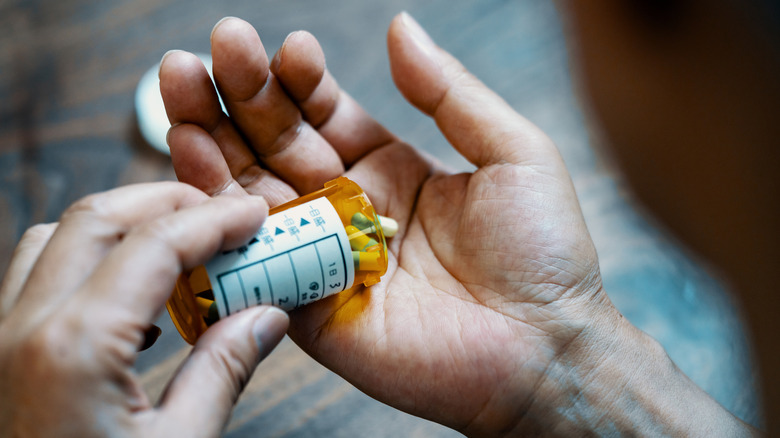
Warning Signs Your Prostate Is Infected (And What To Do About It) – Health Digest
Found in the male reproductive system, the prostate gland is essential to sexual health. For instance, without the prostate to help move it out of the body, semen would never be able to fertilize a woman’s egg.
As men age, their prostate glands can start to change shape. Specifically, as the National Cancer Institute explains, a man’s prostate tends to get bigger over the years. Since it’s located just under the bladder, the prostate’s growth can lead to urination frequency and emptying problems. However, natural prostate growth isn’t the only thing that can cause prostate-related concerns for men.
Men who experience prostatitis have inflamed prostates (which is different from just having a larger-than-average prostate). Prostatitis can stem from acute or chronic bacterial infections. In addition to urinary difficulty, a few signs are hallmarks of infection-related prostatis. It’s important to know these because, if left undiagnosed or untreated, infections of the prostate can have serious health consequences.
Fevers, chills, and lower abdominal discomfort
The Cleveland Clinic estimates that around half of all men will be diagnosed with prostatitis at some time in their lives. But how do you know if you (or a male loved one) has infection-caused prostatitis? Generally speaking, infections of the prostate lead to at least one of several types of physical responses.
The first are symptoms that are frequently attributed to colds or flu, per Healthline. These include fevers, aches, stomach upset, and throwing up. Because they echo symptoms of other conditions, you may not think they’re a prostate infection. But they can be accompanied by other symptoms that are more focused on the lower torso, groin, and genital areas. For example, having pain or discomfort in your belly or lower back can indicate the presence of an infection. Having trouble going to the bathroom (or going “all the time”) and pain during urination can be signs, too. Be on the lookout for blood in the urine as well.
Bottom line: Any unusual changes happening around the prostate deserve a check-up. Without treatment, Mount Sinai cautions that prostate infections can lead to spreading infection, abscesses, and continuing pain.
Antibiotics for prostate care
One of the first treatments doctors turn to when helping patients with prostate infections is antibiotics. Although there are numerous antibiotics on the market, some are more prescribed than others. The American Academy of Family Physicians lists several, including doxycycline and ciprofloxacin. Each man’s course of treatment will depend upon the results of a culture (via StatPearls).
St. Luke’s Hospital notes that surgical intervention may be appropriate for men whose prostate infections resist antibiotic treatment. The hospital lists alternative treatments as well, including the use of supplements such as quercetin, beta-sitosterol, and vitamin C. That said, alternative prostate infection treatments may not be effective as cures but, as mentioned by the hospital, may be more appropriate measures to achieve future prostate health.
Having an infection that causes prostatitis is hardly an enjoyable experience. To lessen the chances of reoccurrance, men may want to follow some prevention-based steps. WebMD suggests exercising regularly, drinking water, reducing the consumption of caffeinated and alcoholic beverages, and avoiding spicy ingredients.





